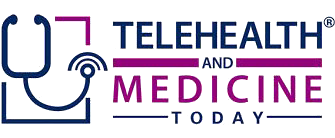Standardizing Competencies and Enhancing Professionalism Through a Telepresenter Certificate Program
Background: Telehealth researchers frequently identify barriers to telehealth delivery, but often their literature does not propose change management strategies to improve access to care through telehealth. Systematic reviews support findings that education and training are lacking to ensure high-quality telehealth delivery. Curriculum that address...
By Rita Kobb, Guercie Jean-Baptiste, Harold Bonds, Rene Love, Catrell Maurice Harris, Tanya Morgan
Text-first virtual care: The key to virtual care sustainability
Virtual care is, and will continue to be, a ubiquitous front door to care as it evolves as a modality to better match the demands and lifestyles of consumers. As with any technology, success comes from learning, iterating, and evolving, and this is certainly true of virtual care as it comes of age. It’s been a complex journey as the modality ...
By Helen Schnase, MD, MBA, Stephanie LaDue
Connecting the Electronic Medical Records in the European Union – Where Do We Stand and Where Does It Go?
The editorial discusses the integration of eHealth systems in the European Union (EU) through the eHealth Digital Service Infrastructure (eHDSI) project. The EU's unique approach to integration involves overcoming language and system differences among its 27 member states. The European Directive 2011/24/EU emphasizes patients' rights in cross-borde...
By Jan Bruthans
Super-specialty Medical Teleconsultations to Remote Areas of Ladakh, India via E-Sanjeevani under Hub-and-Spoke Model: A Pilot Study
Objectives: To assess the feasibility, spectrum, outcomes and challenges of delivering super-specialty consultations to remote areas of the Union Territory (UT) of Ladakh through telemedicine. Design: Prospective, observational (descriptive), pilot study Methodology: Super-specialty medical teleconsultations were provided to healthcare provide...
By Siddharth Jain, Shreya Arora, Anil Chauhan, Amit Agarwal, Biman Saikia, Meenu Singh
Challenges in Digital Health: from Telemedicine to AI
In this ConV2X 2023 panel session, speakers address relevant aspects of the use of artificial intelligence in telemedicine, the opportunities, and threats of AI in health, and the assessment of the digital maturity of organizations. Experiences and views on these topics will guide the presentations....
By Claudio Alves da Costa, Gustavo Meirelles, Jefferson G. Fernandes
Building Comfort and Success at Failing
Failing is an important issue for businesses. Embracing it moves markets, insures consumer safety, and spares unnecessary investment. Are the aviation and nuclear power industries the only industries to truly embrace it and share learnings to fortify standards and best practices? Can healthcare do the same? Telehealth and Medicine T...
By Sarah B. Harper, MA, MBA, Samuel West, Moderator: Paul Barach, B.Sc. MD
Humanism during the COVID-19 pandemic: video call as a strategy to satisfy the communication needs of Intensive Care Unit patients and their family members.
Background: Patients affected by the COVID-19 pandemic required physical/social isolation due to the transmissibility of SARs CoV-2; those hospitalized in healthcare facilities often suffered loneliness due to a complete separation from their loved ones through visitor restrictions.(1) Human contact and movement were restricted to contain the sprea...
By Michelle Grunauer, Fernando Ortega, Paola Yepez, Manuel Jibaja, Andrea P. Icaza-Freire, Jorge W Velez, Mario F Arboleda, María F García
Generative Intelligence: Keeping Up With the Pace of Applied Intelligence Near Term
In an era where technology is transforming every facet of our lives, the healthcare sector stands to gain immensely. The presentation addresses intelligence and the ability to acquire knowledge, through experience, and apply that to future decisions, data, beating human benchmarks, and cost & time. In addition, the speaker explores the role of ...
By Benjamin Taylor
Transitioning From Crisis to Continuity Post-COVID-19 Pandemic: Adoption of Telehealth by Sehat Kahani Healthcare Providers, Karachi, Pakistan
Objective: To evaluate the usability and effectiveness of telehealth services among healthcare providers in Karachi, Pakistan post-COVID-19 pandemic, focusing on the Sehat Kahani platform. Methods: A cross-sectional study was conducted with 388 healthcare professionals utilising the Telehealth Usability Questionnaire (TUQ). Sociodemographic inform...
By Sara Saeed Khurram, Iffat Zafar Aga, Muhammad Muzzamil, Mahek Karim, Shahkamal Hashmi
Deployment of Artificial Intelligence in Neuro Critical Care
...
By Krishnan Ganapathy






